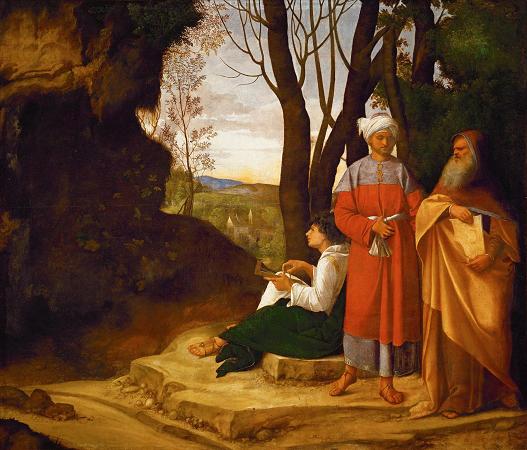Philosopher. A philosopher is someone who practices philosophy. The term philosopher comes from the Ancient Greek, meaning lover of wisdom. The coining of the term has been attributed to the Greek thinker Pythagoras. In the classical sense, a philosopher was someone who lived according to a certain way of life, focusing on resolving existential questions about the human condition, and not someone who discourses upon theories or comments upon authors. Typically, these particular brands of philosophy are Hellenistic ones and those who most arduously commit themselves to this lifestyle may be considered philosophers. A philosopher is one who challenges what is thought to be common sense, doesn't know when to stop asking questions, and reexamines the old ways of thought. In a modern sense, a philosopher is an intellectual who has contributed in one or more branches of philosophy, such as aesthetics, ethics, epistemology, logic, metaphysics, social theory, and political philosophy. A philosopher may also be one who worked in the humanities or other sciences which have since split from philosophy proper over the centuries, such as the arts, history, economics, sociology, psychology, linguistics, anthropology, theology, and politics. This section is about the history of philosophers as an occupation. For a history of philosophy in general, see History of philosophy. The separation of philosophy and science from theology began in Greece during the 6th century BC. Thales, an astronomer and mathematician, was considered by Aristotle to be the first philosopher of the Greek tradition. While Pythagoras coined the word, the first known elaboration on the topic was conducted by Plato. In his Symposium, he concludes that Love is that which lacks the object it seeks. Therefore, the philosopher is one who seeks wisdom; if he attains wisdom, he would be a sage. Therefore, the philosopher in antiquity was one who lives in the constant pursuit of wisdom, and living in accordance to that wisdom. Disagreements arose as to what living philosophically entailed. These disagreements gave rise to different Hellenistic schools of philosophy. In consequence, the ancient philosopher thought in a tradition. As the ancient world became schism by philosophical debate, the competition lay in living in a manner that would transform his whole way of living in the world. Among the last of these philosophers was Marcus Aurelius, who is widely regarded as a philosopher in the modern sense, but personally refused to call himself by such a title, since he had a duty to live as an emperor. According to the Classicist Pierre Hadot, the modern conception of a philosopher and philosophy developed predominately through three changes: The first is the natural inclination of the philosophical mind. Philosophy is a tempting discipline which can easily carry away the individual in analyzing the universe and abstract theory. The second is the historical change through the Medieval era. With the rise of Christianity, the philosophical way of life was adopted by its theology. Thus, philosophy was divided between a way of life and the conceptual, logical, physical and metaphysical materials to justify that way of life. Philosophy was then the servant to theology. The third is the sociological need with the development of the university. The modern university requires professionals to teach. Maintaining itself requires teaching future professionals to replace the current faculty. Therefore, the discipline degrades into a technical language reserved for specialists, completely eschewing its original conception as a way of life. In the fourth century, the word philosopher began to designate a man or woman who led a monastic life. Gregory of Nyssa, for example, describes how his sister Macrina persuaded their mother to forsake the distractions of material life for a life of philosophy. Later during the Middle Ages, persons who engaged with alchemy was called a philosopher-thus, the Philosopher's Stone. Generally speaking, university philosophy is mere fencing in front of a mirror. In the last analysis, its goal is to give students opinions which are to the liking of the minister who hands out the Chairs. As a result, this state-financed philosophy makes a joke of philosophy. And yet, if there is one thing desirable in this world, it is to see a ray of light fall onto the darkness of our lives, shedding some kind of light on the mysterious enigma of our existence., Arthur Schopenhauer Many philosophers still emerged from the Classical tradition, as saw their philosophy as a way of life.
more...








